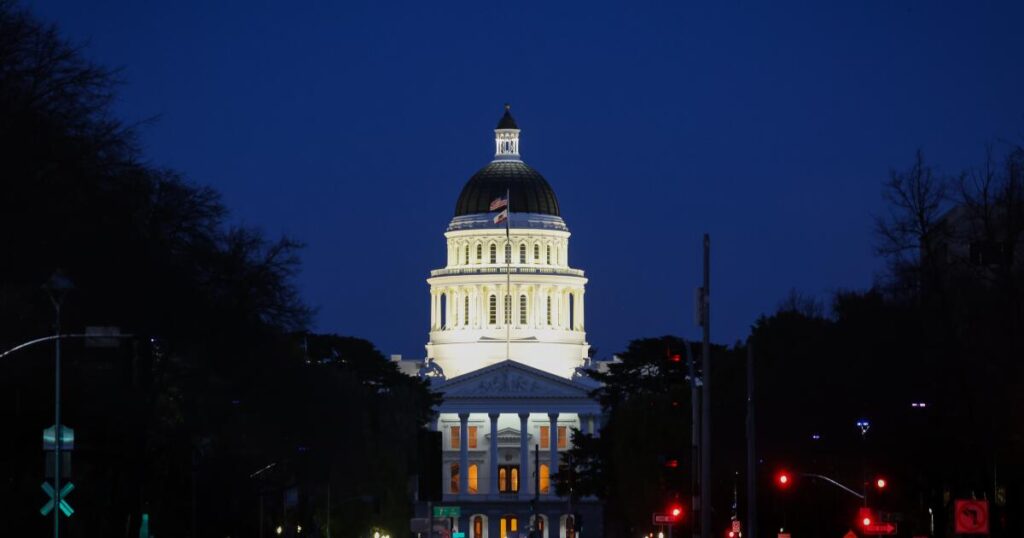
California lawmakers have announced plans for a bond measure that would add $20 billion to the state’s debt but help fund efforts to combat climate-related disasters, ensure clean drinking water and modernize school buildings.
The two climate and education bond measures, which would borrow $10 billion each, could go to voters on the November ballot if approved by the Legislature this week and then signed by Gov. Gavin Newsom.
“These bond measures are critical to the future of this state,” California Senate President Pro Tempore Mike McGuire (D-Healdsburg) said in a statement.
After months of closed-door negotiations at the state Capitol over which issues should be addressed with long-term financing and how much borrowing, top Democratic lawmakers announced an agreement on the bond measure on Sunday. The deal represents lower demands — the original proposals were more than $14 billion and $15 billion respectively — and abandons plans to pursue bond measures to fund affordable housing.
Newsom signed a budget plan Saturday that would eliminate an estimated $46.8 billion deficit through spending cuts and temporary tax increases on some businesses. The bond measure, if approved by voters, would allow lawmakers to borrow funds not allocated in the budget.
Environmental groups including the California Biodiversity Institute support the climate-related bond, which aims to help communities “avoid” and recover from disasters such as flooding and extreme heat. If passed, it would be the largest climate investment in the state’s history.
“Every part of our state is affected, and unless we act now, the cost of addressing these impacts will become increasingly significant,” said state Sen. Ben Allen (D-Santa Monica), chairman of the Senate Environmental Quality Committee explain.
A long list of school districts supports an education finance bond measure that would modernize schools in need of new heating and cooling systems, libraries and broadband internet. But the civil rights group Public Advocates threatened to sue over the measure because what it called an “unfair allocation formula” could discriminate against low-income school districts.
“This bond will continue to provide more state bond funding to wealthier areas where property assessment values are higher and have a greater ability to raise local bonds,” Public Advocates said in a statement Sunday.
If the Legislature approves climate and education measures this week, voters may not approve them in November. Voters in this year’s primary narrowly approved Proposition 1, a $6.4 billion bond measure aimed at transforming California’s mental health system.
A recent poll conducted by the Public Policy Institute of California showed that 64% of voters surveyed said it was a “bad time” to issue state bonds. California’s outstanding bond debt is about $79 billion, according to the nonpartisan Legislative Analyst’s Office.
The Associated Press contributed to this report.

